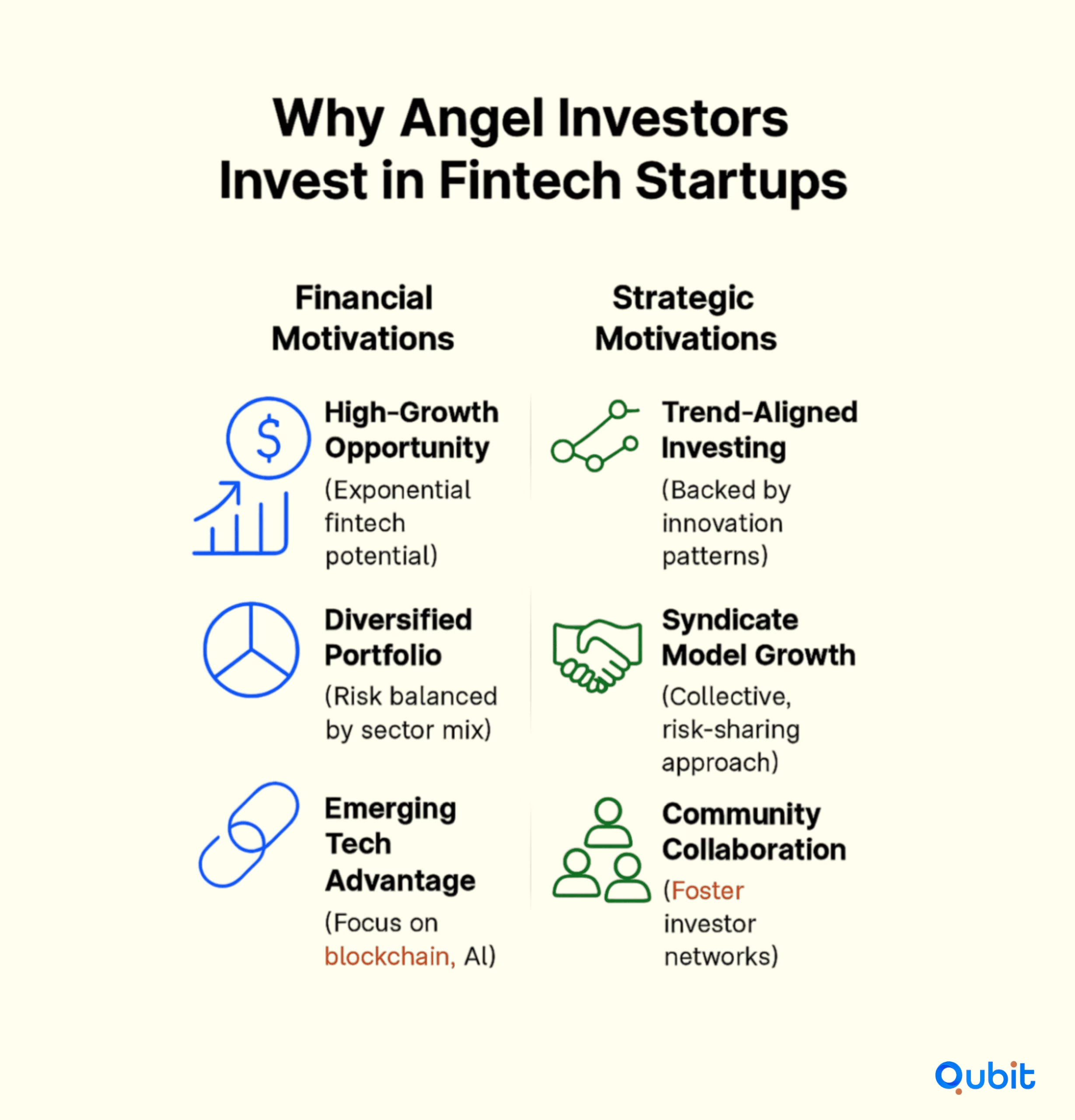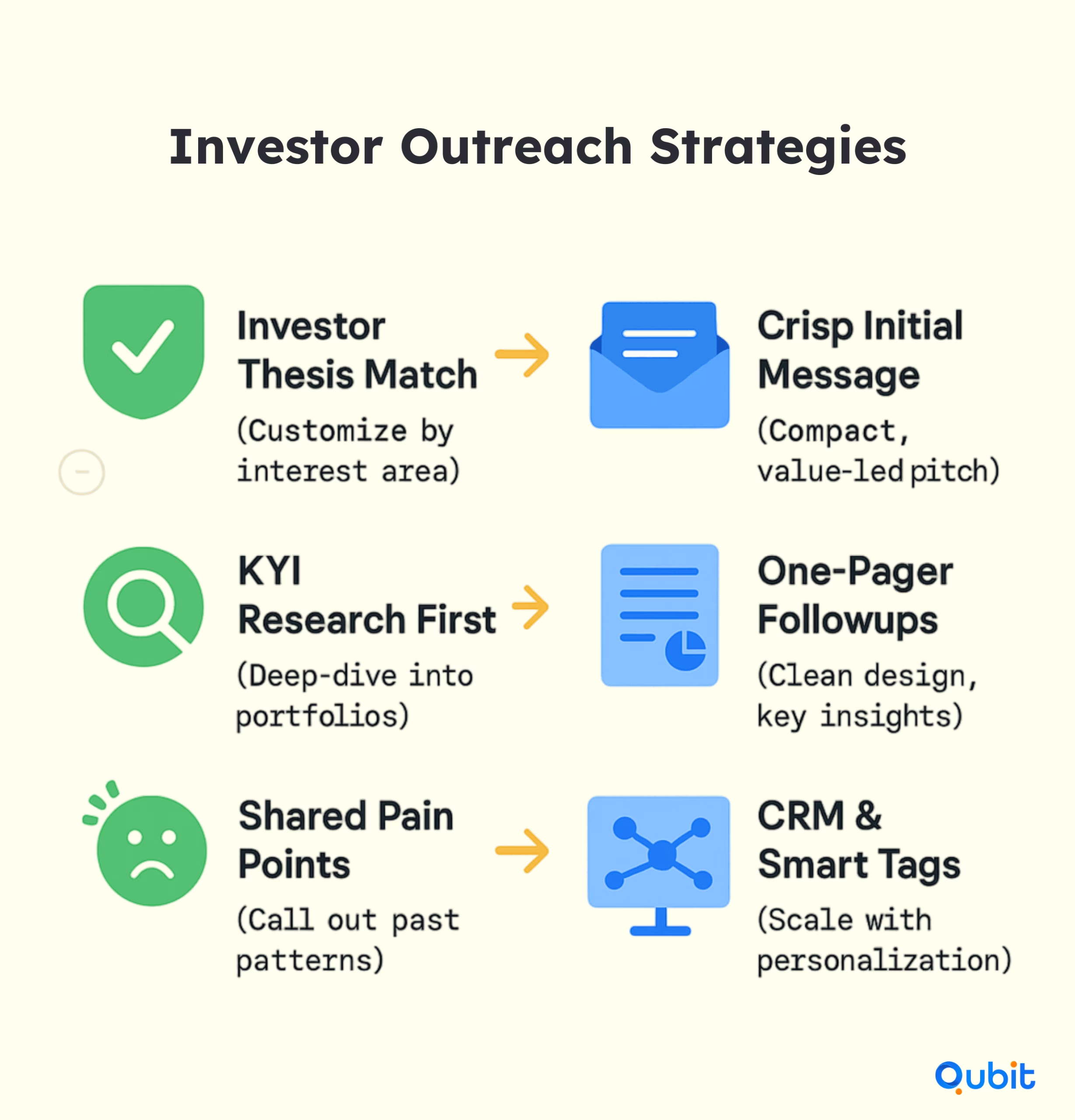Angel investing has become a cornerstone for startups seeking early-stage funding, particularly in a sector as dynamic as financial technology. These networks connect entrepreneurs with investors who bring not only capital but also industry expertise and mentorship. Understanding how to approach these networks can significantly impact a startup's ability to secure funding and scale effectively.
A broader perspective on financial acquisition is offered in fintech fundraising strategies and opportunities, providing context that complements your exploration of these pathways. This blog aims to demystify the process of engaging with angel investors in FinTech, offering actionable insights to help you identify the right networks and maximize your chances of success. Whether you're a startup founder or an investor, this guide will illuminate the key strategies and opportunities in this evolving space.
Let's get started!
What is Fintech Angel Investing ?
Fintech Angel Investing is a niche segment within the broader field of angel investing that focuses specifically on early-stage investments in financial technology (fintech) startups. These are typically high-risk, high-potential ventures aiming to disrupt or innovate in the financial services industry using technology.
Here's a quick breakdown:
Angel investing refers to the practice of high-net-worth individuals providing capital to early-stage startups in exchange for equity or convertible debt. These investors, often called angel investors, typically get involved at the pre-seed or seed stage when the business is still developing its product, team, or market fit. Beyond funding, angel investors may also offer mentorship, industry connections, and strategic advice to help startups grow and increase their chances of success.
Fintech, short for financial technology, encompasses the use of technology to innovate and improve financial services and systems. This includes a broad range of applications such as digital payments, online lending, personal finance tools, insurance technology (InsurTech), blockchain solutions, and neo-banking platforms. Fintech aims to make financial services more efficient, accessible, and user-friendly, often by disrupting traditional banking and financial institutions through automation, data analytics, and modern user experiences.
Angel investors play a pivotal role in nurturing these ideas, providing capital and mentorship to startups during their critical early stages. For those interested in understanding the nuances of fintech angel investing, signing up for the Fintech Angel Investing Webinar is an excellent starting point. This webinar delves into best practices and strategies for identifying promising fintech ventures.
Why Angel Investors Invest in Fintech Startups?

Investor Motivation
Angel investing in fintech is driven by a blend of financial aspirations and strategic foresight. Investors are drawn to this sector not only for its potential to deliver high returns but also for the opportunity to participate in transformative innovation. With the global angel funds market projected to grow at 12.5% CAGR, the fintech space continues to attract robust interest worldwide.
Financial Motivations
One of the primary financial drivers for fintech angel investing is the promise of substantial returns. Fintech startups often operate in high-growth areas like digital payments, blockchain, and AI-driven financial solutions, making them attractive to investors seeking exponential portfolio growth. Additionally, sector diversification appeals to those aiming to stabilize their portfolios by spreading risk across industries. Fintech investments provide a unique opportunity to balance high-risk, high-reward ventures with more traditional holdings.
Strategic Motivations
Beyond financial gains, strategic motivations play a significant role in angel investments. Many investors are keen to align their portfolios with emerging market trends, such as the increasing adoption of syndicate investing structures. The Syndicate Investing Growth trend highlights the growing popularity of collective investment models, enabling investors to pool resources. Additionally use risk management strategies to get funding for your fintech startups.. This collaborative approach not only mitigates individual exposure but also fosters strategic partnerships within the investment community.
Aligning Investments with Goals
To maximize the benefits of fintech angel investing, it’s crucial for investors to align their involvement with both market trends and personal portfolio objectives. Staying informed about industry shifts, such as the rise of blockchain-based solutions or AI-driven financial tools, can help investors identify lucrative opportunities. Moreover, understanding one’s risk tolerance and long-term financial goals ensures that investments are both strategic and sustainable.
Fintech angel investing offers a dynamic blend of financial and strategic advantages, making it an appealing choice for forward-thinking investors.
How to Build Investment Network in Fintech?
Securing access to high-quality deal flow in fintech requires a proactive approach to identifying promising startups. By building strong networks and tapping into investor communities, you can uncover opportunities that align with your investment goals.
1. Build Relationships Through Targeted Networking
Networking with the right people is essential for discovering fintech startups with potential. Joining specialized communities such as Membership registration on FinTech Circle provides access to exclusive events and forums where investors and entrepreneurs connect. These platforms not only help you stay informed about emerging trends but also create opportunities to engage directly with founders and other investors.
2. Explore Emerging Markets for Untapped Opportunities
Emerging markets often present unique opportunities for fintech angel investing. For example, 2058 angel investors invested over $22.5M in Africa in recent years, demonstrating the resilience of angel activity even during economic slowdowns. With 28% of African angel investments going to fintech, the sector continues to dominate in these regions. These statistics highlight the importance of exploring markets where fintech innovation is thriving.
3. Collaborate Within Investor Communities
Investor communities are invaluable for sharing insights and pooling resources to evaluate startups. Engaging with groups focused on fintech angel investing can provide access to curated deal flow and collective due diligence. Your analysis benefits from insights detailed in early stage fintech funding strategies, which enrich the discussion with additional viewpoints on securing early capital.
Strengthening Angel Investor Outreach For Your Fintech Startup
In a crowded market where many founders are competing for attention, strategic outreach built on personalization, research, and clear communication can significantly boost your chances of engagement and support.

1. Tailor Every Outreach to Investor Fit
Avoid the trap of sending generic emails. Instead, approach each investor with a clear understanding of their past investments, areas of interest, and involvement in fintech. Demonstrate why your startup aligns with their investment thesis. Whether it’s your focus on embedded finance, digital wallets, or next-gen credit infrastructure. This level of customization not only helps your message stand out but also signals respect for the investor’s time and experience.
2. Know Your Investor (KYI) Before You Pitch
Just as we obsess over product-market fit, apply the same diligence to investor-founder fit. Deep-dive into an investor’s background—look at their fintech track record, thought leadership, or even portfolio synergies, and use those insights to shape your pitch. If your startup solves a pain point in an area they’ve championed before, call it out. Doing your homework shows you're serious, prepared, and aligned with their worldview.
3. Keep It Clear, Compact, and Compelling
Don’t overwhelm investors with excessive details in your initial outreach. Share a punchy overview that clearly explains your value proposition, traction, and market opportunity. Think in terms of what’s most relevant for a quick scan. Providing clean, well-designed one-pagers or decks as follow-ups gives investors the freedom to explore more when they're ready, while keeping the initial pitch lightweight and focused.
4. Use Smart Tools to Stay Efficient and Personal
Managing multiple investor relationships requires systems. Leverage CRM tools to track communications, segment investor types, and personalize follow-ups. Email tools with smart tags and automation can help scale without sounding robotic. This ensures your outreach stays consistent and professional—even as your pipeline grows.
Conclusion
Securing angel investments requires a blend of strategic planning and compelling storytelling. By focusing on investor motivation, maintaining a steady deal flow, and crafting targeted outreach efforts, startups can position themselves as attractive opportunities. Additionally, clear and narrative-driven fundraising strategies play a pivotal role in building trust and aligning with investor expectations.
If you’re looking to convert angel interest into real commitments, at Qubit we understand investor motivation, deal-flow discipline, and story-led outreach. Move fast with our fintech fundraising assistance and line up your next investor meetings.
Key Takeaways
- Fintech angel investment requires strategic outreach and thorough due diligence.
- Angel investors are driven by both financial gains and market trends.
- Access to quality deal flow is boosted through effective networking and curated databases.
- Personalized outreach and concise pitches are essential to secure investment.
- Tax advantages and financial tools optimizes investment returns.
Frequently asked Questions
Who are the top fintech angel investors?
Notable fintech angel investors include Naval Ravikant, Sheel Mohnot, Auren Hoffman, and Elizabeth Yin, among others.






